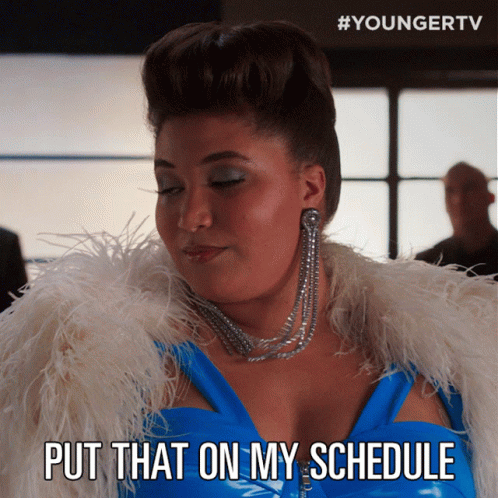Keep Great Talent by Avoiding These 3 Common Mistakes in Your Employee Onboarding Process
A McKinsey report shockingly declared that more than 4.3 million people voluntarily quit their jobs in December 2021, and they aren’t coming back any time soon. Even if your company is great at hiring, a surprising number of new employees quickly quit. In fact, “72% of young workers say they’ve regretted a new job after starting.” Yikes!
The reality is that finding new people to fill team vacancies is expensive and time-consuming. And the work doesn’t end once you’ve found the perfect candidate.
You want them to be excited about joining your organization, and to do so you still need to explain:
- What your company does
- Clarify their particular role and expectations
- Welcome them into the team dynamic
- Familiarize them with the company culture.
We know - it's a lot. And not a burden one person should take on their own!

Unfortunately, many employers turn to the dreaded employee manual or templated welcome package - the status quo (Zzz). New employees start their first days with soaring expectations, eager to fly, but then what happens? They get stuck in the training stage completing forms, reading manuals full of company policies (“I’ll take ‘how to scan your company ID’ for $200, Alex''), watching uninspiring videos, and contemplating life at their next new company (ouch). In the worst case, they ultimately flee their new-found nest.
Fortunately, there is a better way to make the onboarding process more effective, and even a little fun (let’s get real, it’s us - a LOT of fun). Get employees excited and enthused about joining your company by avoiding these three common mistakes in your employee onboarding process.
The Importance of an Effective Employee Onboarding Process
Here are some common reasons why employees voluntarily leave different kinds of companies: they didn’t understand the company culture, had bad experiences with uncaring leaders, faced unreasonable expectations, or already thought there were limited or no career advancement opportunities.
Effective onboarding acclimates new employees to their role in the organization, provides an overview of the company's philosophies, and defines workplace expectations. The main purpose of effective onboarding is to engage new-hire employees, create happier workers who are committed to the company's success, and motivate them to stay.
A quality onboarding employee experience should:
- Provide an understanding of the company culture: Ideally, your new hire should see some of their personal values mirrored in your company values.

- Show employees how to be successful in their new role: Outline expectations, explain what success looks like, and how performance will be measured. Welcome any and all questions. Clarity is key! 🔑
- Introduce them to their managers, teammates, and the wider team: Not only does this make your new hire more comfortable, but it helps the rest of the crew understand the changing team dynamic.
- Make their first days memorable: Brightening their day can be as extravagant as a catered lunch, or as simple as everyone on the team sending them a funny GIF on Slack.

- Get them quickly engaged with your company: One of the quickest ways to get people feeling comfortable with each other? Get them speaking the same language: introduce them to the company communication channels like Slack or Teams, the ins and outs of the break room, the virtual water cooler, the daily trivia app…show them how you communicate as friends, and they’ll be more comfortable engaging as peers.
When done well, onboarding can reduce turnover, increase job productivity, cultivate strong work relationships, and build a positive company culture. Successful onboarding is essential to building an engaged team.
3 Common New Hire Onboarding Mistakes to Avoid
Keeping quality talent begins with a great onboarding process. Finding and hiring the right talent is important to your success, but onboarding them effectively is equally important. A poor onboarding employee experience can negatively impact employee engagement, retention, and your overall company culture.
Avoid these common mistakes and make sure your new hires get off on the right wing:
- A Not-so-Warm Welcome: Imagine you’re a new employee who had several good offers from other companies, but chose your company. On the first day, it feels like nobody is expecting you. A harried manager shovels a pile of papers from a broken-down desk, and says, “Welcome to the zoo, kid. Good luck.” No one seems prepared for the meetings scheduled on your calendar. Without a proper welcome from the HR team, you're left to your own devices.
Instead, let HR get the work team ready, have a desk in place, provide necessary technology and any log-in information, and welcome the new employee with a guided immersion into the job and your company. Swap boring checklists for an interactive experience for onboarding, and create an onboarding program that encourages 2-way communication with the team from day one.
Get them excited about the culture they’ll be joining, and that will make the rest of your onboarding experience stick.

- TMI: If you think people share “too much information” on first dates, think about the information overload on first work days! Many companies blast every rule and regulation at new employees, and expect them to be remembered forever.
Your website or employee portal should be a hub for FAQs regarding things like payday, PTO, sick days, a business travel policy template and remote work policies, and reading through them is certainly valuable. But instead of the information overload of a whole list of policies they’ll (hopefully) have a career to learn, try creative onboarding activities that get them familiar with the must-knows (How do they request time off? What are official working hours?) in a more fun way.
For example: As part of a Goosechase Experience, have a Mission ask them to create a calendar reminder to review their pay stub after each payday. To get the points, they have to submit a screengrab of their calendar with their desktop background visible. Not only will they learn when payday is, they'll have set up a practical automation AND have a chance to show off their personality!

- Culture shock: Starting at a new company is always going to take getting used to. Use the employee onboarding process as an opportunity to have an open conversation about your company's mission, vision, and values, so new employees feel up-to-speed on what's driving everyone at work.
A surefire way to give new hires a boost of confiedence? Give them an easy win.
Involve them in brainstorms as early as day one, if only just to sit in and observe. Assign actual tasks for new employees to work on with co-workers, and see just how quickly they can build rapport when collaborating. Got a challenge that’s been flummoxing you? Give them a shot at brainstorming solutions – their fresh perspective could be just what you all needed! And be sure to introduce them to your “virtual” water cooler, a place they can unwind in their downtime.

How To Improve the Employee Onboarding Process
There are many mistakes companies make during the onboarding process, so how can you do it better?
What to consider when building an onboarding plan:
- Put people first, not policies: Make it more about them than you. Be open and honest, and treat new employees the way you would want to be treated if you were in their place.
- Create great expectations: Give them a peek into what they can expect with your company, and provide them motivation to want to keep coming back. Be clear about what you expect from them, too - knowing exactly what is expected of them gives them one less question mark on day one!
- Ask for feedback: This isn't just a period for you to assess your new hire's fit; they'll be analyzing your team, too! You never know how you are really doing unless you ask, so go ahead - ask in person, send a quick email or text, have lunch or coffee together, use a short survey - and ask how their onboarding process is going.
- Have some fun! You know fun is a massive part of Goosechase's brand values, but we’ll let you use it, too. We are all about having serious fun, and onboarding new employees is no exception. Because welcoming someone to the team is exciting - you're growing, and they get to try something new. It should feel like a celebration!
The employee onboarding process can be a slow-moving train to boredom and frustration, or a bullet train to enthusiasm and success. We think we know which route you'd like yours to be. Make sure your onboarding train is on the right track!
What is Goosechase?
At Goosechase, experience is everything. Originally inspired by scavenger hunts, Goosechase is an online platform that enables organizations and schools to engage, activate, and educate their communities through delightful interactive experiences. Sign up and try creating a free recreational game, or contact us to learn more about our enterprise solutions!





